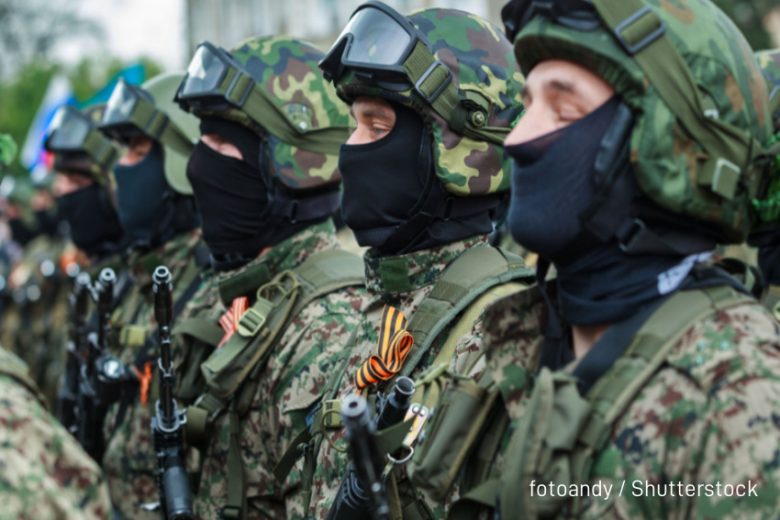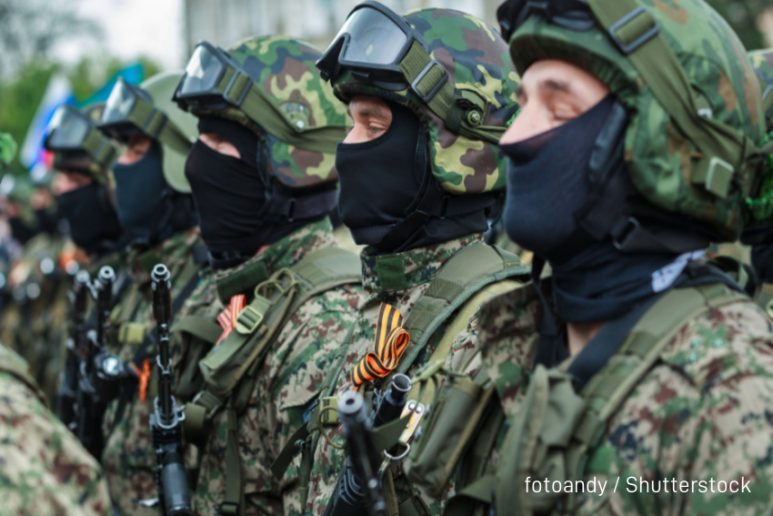By Dina Newman
@dinanewman
‘Warrior Buryats: life of savages who dream about a washing machine’, ‘Warrior Buryats die in Ukraine, their families don’t mind’, are among popular Ukrainian videos documenting the brutal war Russia is waging in Ukraine.
A headline offers ‘photos of Buryat occupiers who committed atrocities in Bucha’. A hashtag, ‘Buryats’ serves as a clickbait. A well-known Ukrainian journalist Anatoly Anatolich, has ‘exposed’ ‘cruel bloodthirsty Buryats’ in his YouTube videos and even addressed ‘the people of Buryatia’.

Ukrainian journalists might plead ignorance about a small ethnic minority in Russia. This excuse is not available to those Russian opposition activists and journalists who peddle the same racist stereotype. Take a quote from an anti-Kremlin journalist Alexander Nevzorov in an interview to a popular Ukrainian YouTube channel: ‘Buryats don’t care who they rape’.
Or a quote from a political commentator Andrei Piontkovsky, in an interview to the same channel: ‘If Ukraine falls, Buryat and Chechen sadists will go shopping in Milan and Paris’. A Russian opposition journalist, Olga Guseva, said in a broadcast that ‘the worst elements of our society are fighting in Ukraine: poor people and Buryats’. Later, she admitted on Instagram that she simply repeated a commonly held stereotype, and did not mean to blame any ethnic group in particular.
Where Is Buryatia and Who Are Buryats?
Buryats are a relatively small ethnic group of Mongolian origin who live in Eastern Siberia.
The image of savage Mongolian-looking warriors who are ripping Ukraine apart echo the stories of the medieval Mongol invasion, described as a catastrophe in Russian and Ukrainian history books.
‘You can get the impression that Buryatia, not Russia, is attacking Ukraine’, says Aleksandra Garmazhapova of Free Buryatia Foundation, an independent organisation based outside Russia. The Foundation campaigns for Buryatia to stay as part of Russia, and for Russia to become a real federation, with more powers devolved to its regions.
Buryatia is a peaceful area in remote Eastern Siberia, on the shores of Lake Baikal. About 70 per cent of the area is populated by Russians and other ethnicities, and only 30 per cent are ethnic Buryats. More Buryats live in the neighbouring areas, and overall, they number about half a million people, just 0.3 per cent of Russia’s population. Could they really be responsible for the worst war crimes in Ukraine?
Most allegations about ‘Buryat atrocities’ came from the Ukrainian town of Bucha near Kyiv. The 64th motorised Rifle Brigade of the Russian Army which occupied the town is based in Khabarovsk region in the Far East of Russia, thousands of kilometres away from Buryatia.
Investigations have shown that fewer than two per cent of the soldiers from that unit have Buryat names. Nor does Buryatia feature among the regions where most looting soldiers posted goods stolen from Ukraine. One investigation has shown that a soldier from the unit, an ethnic Buryat, whose name and photos were published as an alleged perpetrator, had left the army in 2019.
Why Are Buryats Blamed for Russian Army Atrocities?
According to Aleksandra Garmazhapova of Free Buryatia Foundation, the story goes back to 2015, when the Kremlin denied the presence of Russian troops in Eastern Ukraine. At the same time, journalists noticed Asian-looking soldiers who stood out among the locals. They turned out to be Russian soldiers from Buryatia. In response, a pro-Kremlin youth movement published a YouTube video from Buryatia. Called ‘Putin’s Buryat Warriors’, it showed a group of young Buryat people pledged allegiance to Putin. The video denied the presence of Russian troops in Ukraine, but the phrase, ‘Putin’s Buryat warriors’, stuck and came to identify all Asian looking soldiers in Ukraine, be they Yakut, Kalmyk, Tuvin or Buryat.
Russia has a long colonial history of setting ethnic minorities against each other, and it suits the Kremlin that some minorities are singled out and blamed for the worst war crimes in Ukraine. Aware of that, the Ukrainian presidential adviser Alexey Arestovich pointed to the information that most crimes in Bucha had been committed not by Buryats, but by ‘strong men of Slavic appearance’. Later investigations also identified a group of ethnic Russian soldiers among the main suspects in Bucha.
Why are Buryat Soldiers Fighting in Ukraine?
The main reason is financial. Buryatia is one of the poorest regions in Russia, and the salary of a Russian Army soldier is way above the average in the region. The compensation which the central government pays for the killed or disabled soldier is also relatively high. However, many regions pay additional compensations, which Buryatia cannot afford. As a result, families in Buryatia get smaller pay-outs for their loss than families in European Russia.
According to Yevgenia Baltatarova, a journalist and an activist from Buryatia, many Buryats, like other residents of Russia, have been influenced by Russian propaganda and think the ‘special operation‘ in Ukraine is justified.
The Free Buryatia Foundation, based outside Russia, calls on all Buryats to understand they have nothing to fight for in Ukraine. It points to the legacy of racism which is wide spread in Russia since the days of the USSR. ‘Buryats, Ukrainians and Kazakhs can understand each other very well’, says Aleksandra Garmazhapova. ‘In the Soviet Union, all of these peoples were considered second-rate… Ukrainians remember very well that they were not considered equal with Russians, instead they were seen on par with Kazakhs or Buryats.’
‘The Kremlin talks about de-Nazification, but considering racism in Russia itself, no ethnic minority can take this slogan seriously. Fighting for the ‘Russian world’ does not work for them either. Chechen commanders talk about ‘fighting for the glory of Allah’ in Ukraine, and this is clearly nonsense’, says Garmazhapova.
Before Russia started the war against Ukraine, many residents of Buryatia saw joining the Russian army as a convenient way to improve their family finances. According to Garmazhapova, ‘with over 300 dead bodies now back in Buryatia, people are now beginning to wonder if it’s worth it’.
The Russian Opposition Media: What’s to Be Done?
Some Russian opposition activists have started to pay attention to the racist nature of the fakes about ‘savage Buryats’. An opposition activist Vladimir Milov has helped to debunk the stereotype in a YouTube video.
An opposition politician and a former Russian oligarch Mikhail Khodorkovsky regularly talks about the multi-ethnic nature of Russia on his YouTube channel. In Russia, some ethnic minority activists have started to publicise anti-war slogans in their native languages.
While President Putin declares himself ‘the biggest Russian nationalist’, the challenge for the liberal Russian media is to expose widespread Russian racism and to combat the ignorance about Russia’s own ethnic minorities.
Photo Credits: fotoandy / Shutterstock

